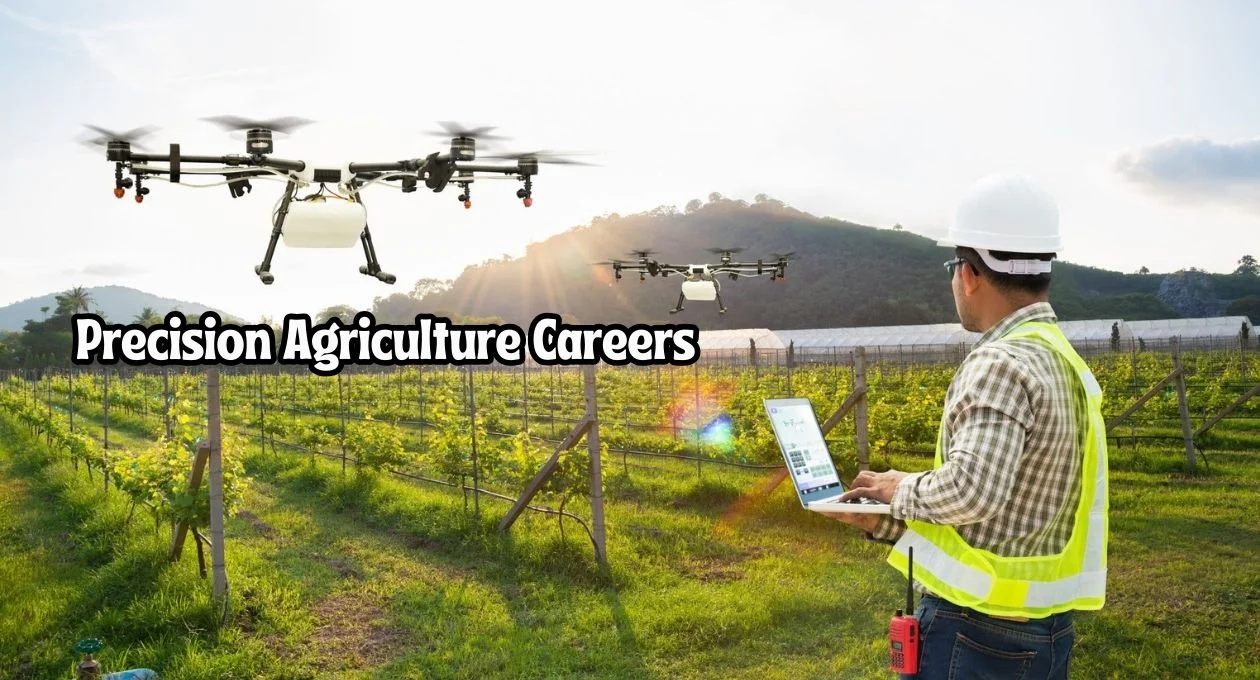Precision Agriculture Careers opportunities for those interested in the intersection of technology and farming.The agricultural industry is undergoing a transformative shift with the advent of precision agriculture. This innovative approach leverages technology to optimize farming practices, resulting in increased efficiency and productivity. As the field of precision agriculture grows, so do the career opportunities within it. This blog explores various career paths in precision agriculture, detailing what each role entails and the skills required.
As a precision agriculture specialist, one can work on the ground with farmers, advising them on how to utilize advanced technologies such as GPS-guided equipment, remote sensing, and data analytics to improve crop yields and sustainability. This role requires a deep understanding of both agricultural practices and modern technological tools, making it ideal for individuals with a background in agronomy, environmental science, or engineering.
Another intriguing career choice is that of a data analyst within the agricultural sector. In this position, professionals analyze vast amounts of data collected from various sources such as soil sensors, drones, and satellite imagery. By interpreting this data, they can provide actionable insights to help farmers make informed decisions about planting, irrigation, and pest management. Strong analytical skills and proficiency in data analysis software are crucial for success in this role.
Precision Ag Careers
precision agriculture careers encompass a broad range of roles focused on applying technology to improve agricultural practices. These careers are centered around using data-driven approaches to enhance crop yields, manage resources efficiently, and reduce environmental impact. Professionals in this field work with cutting-edge technologies like GPS, remote sensing, and data analytics to support modern farming techniques.
In addition to roles directly working with farmers and data, there’s a growing demand for precision agriculture software developers. These professionals create and maintain the software tools that collect and analyze agricultural data, enabling farmers to use their resources more effectively. A background in computer science or software engineering, combined with an understanding of agricultural processes, is often essential for those pursuing this career path.
Furthermore, research and development positions in agricultural technology companies present another avenue for careers in precision agriculture. These roles involve creating innovative hardware and software solutions to meet the ever-evolving needs of the agricultural industry. Individuals in these positions often work on developing new sensors, robotics for automated farming, or advanced analytics platforms. A strong foundation in STEM subjects and a passion for innovation are key characteristics for success in these roles.
Precision Ag Jobs
Precision ag jobs are diverse and cover several aspects of precision agriculture. These positions range from field-based roles to data analysis and technology management. Individuals working in precision ag jobs may be involved in tasks such as implementing precision farming technologies, analyzing agricultural data, and providing technical support to farmers.
Those interested in business and entrepreneurship can also find opportunities within precision agriculture. Agricultural consultants, for instance, work with various stakeholders, including farmers, agribusinesses, and government agencies, to develop and implement strategies that maximize the use of technology in farming. These consultants need a blend of agricultural knowledge and business acumen to provide valuable solutions and improve overall farm management.
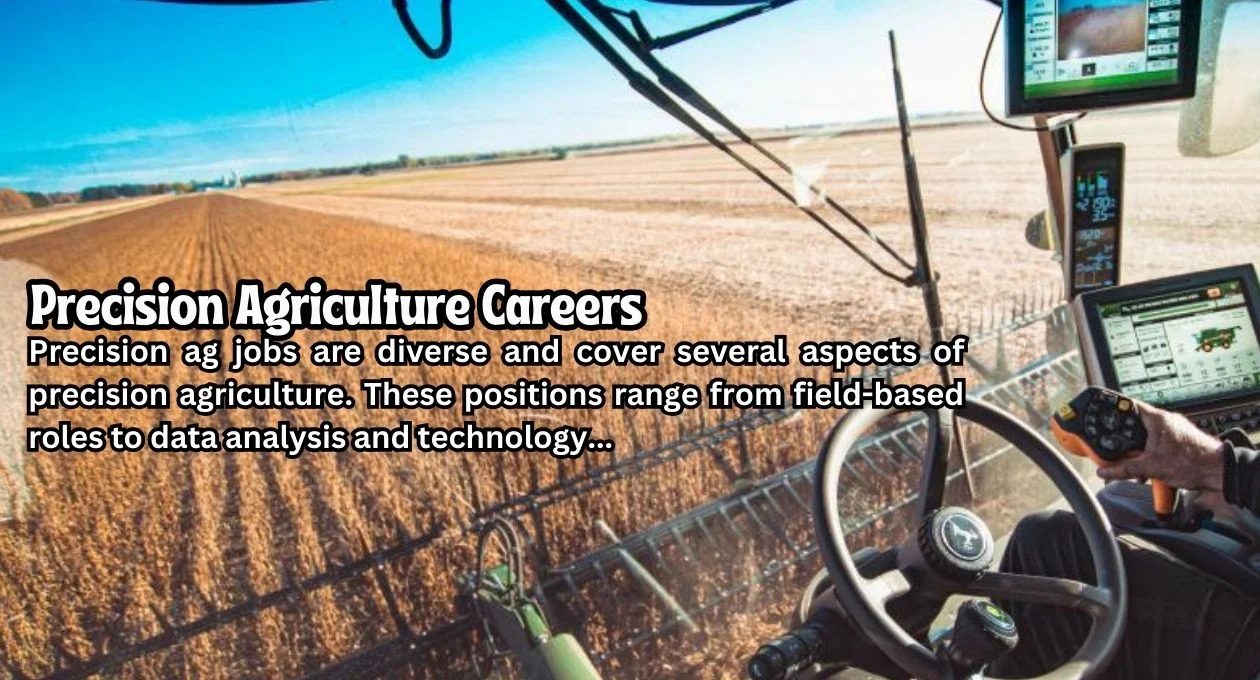
Educational and training roles offer another avenue for career growth. Universities, community colleges, and agricultural extension programs need educators to teach the principles and applications of precision agriculture. These positions are critical for developing the next generation of precision agriculture professionals, ensuring that farmers and technicians are well-versed in the latest technologies and practices. An educational background, coupled with hands-on experience in the field, can be particularly advantageous in these roles.
Precision Agriculture Jobs
Precision agriculture jobs refer to careers specifically focused on the application of precision agriculture principles. These jobs may include roles such as agronomists, data analysts, and technology specialists. Professionals in these positions work to integrate advanced technologies with traditional farming practices, ensuring that farms operate at peak efficiency.
Sustainability is a core principle in precision agriculture, and many careers in this field focus on creating environmentally friendly farming practices. By utilizing precision technology, professionals aim to minimize waste and reduce the use of chemicals, leading to a smaller ecological footprint. This approach not only benefits the environment but also enhances the health and quality of the soil, water, and crops, ensuring long-term agricultural productivity.
Networking and collaboration are essential for success in precision agriculture careers. Professionals often work closely with a diverse range of stakeholders, including researchers, policymakers, and technology developers, to stay abreast of the latest advancements and best practices. This collaborative effort fosters innovation and promotes the exchange of ideas, ultimately contributing to the continuous improvement and efficiency of modern farming techniques.
Precision Farming Jobs
Precision farming jobs are roles dedicated to the implementation and management of precision farming techniques. These jobs often involve working directly with farmers to apply technologies that enhance crop production and resource management. Responsibilities might include using GPS technology for field mapping, managing variable-rate application systems, and optimizing irrigation practices.
Precision farming jobs also demand a robust understanding of various agricultural equipment and machinery. Professionals in these roles are expected to stay updated on the latest technological advancements and integrate them into daily farming practices. This requires continuous learning and adaptability, as the agricultural sector is constantly evolving with new tools and techniques aimed at improving efficiency and productivity. Effective communication skills are also essential for collaborating with farmers, technicians, and other stakeholders to successfully implement precision farming methodologies.
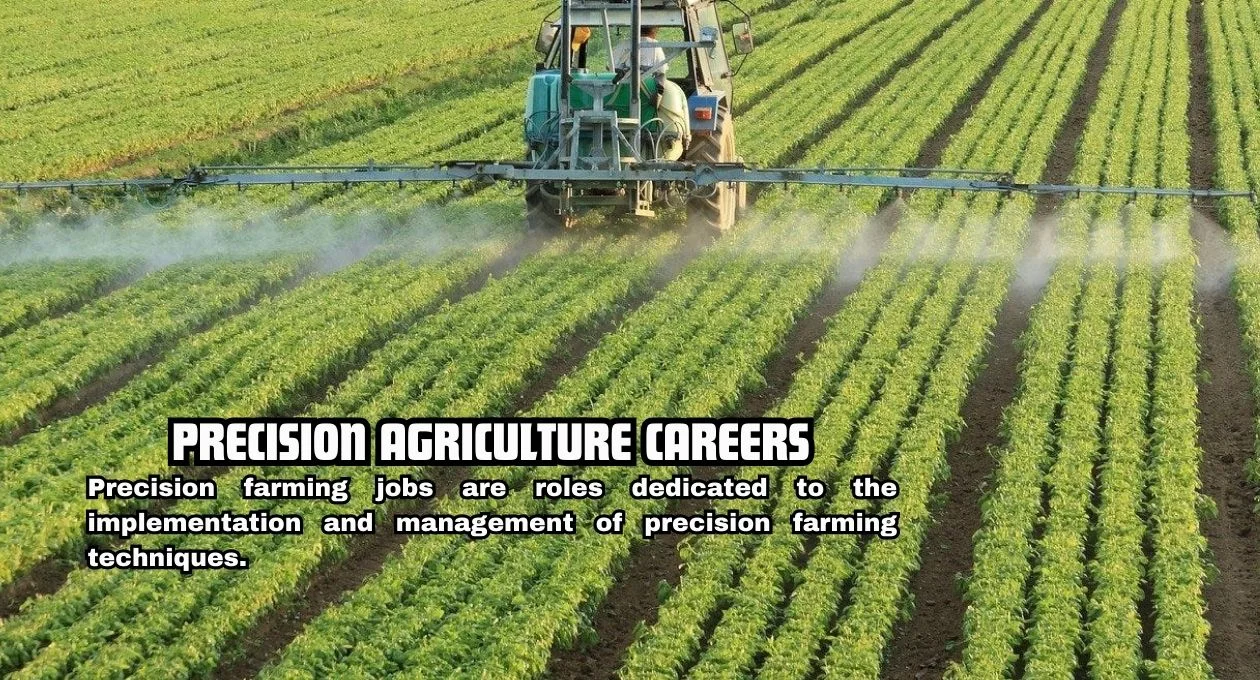
Moreover, the application of precision agriculture principles often extends beyond crop farming to include livestock management. Precision livestock farming involves the use of sensors and data analytics to monitor animal health, optimize feeding practices, and enhance breeding programs. By employing these technologies, farmers can ensure better welfare for their livestock while also improving overall farm performance. This multifaceted approach underscores the importance of precision agriculture in transforming traditional farming practices into more sustainable, efficient, and technologically driven operations.
Precision Ag Specialists
Precision ag specialists are experts in the field of precision agriculture. They possess in-depth knowledge of the technologies and methodologies used in precision farming. Their role often involves consulting with farmers to implement precision ag solutions, training staff, and staying updated on the latest technological advancements. Precision ag specialists play a crucial role in ensuring that precision agriculture techniques are effectively applied.
Precision ag specialists must also navigate the challenges that come with integrating new technologies into farming operations. This often involves troubleshooting issues with precision equipment, ensuring compatibility between various systems, and fine-tuning processes to meet the specific needs of different crops or livestock. Their expertise not only helps in addressing immediate concerns but also in preventing future problems through careful planning and proactive management.
In addition to technical skills, effective communication is vital for precision ag specialists. They need to explain complex concepts in an understandable way to farmers and other stakeholders who may not have a technical background. Building strong relationships and trust with these individuals is crucial for successful implementation of precision agriculture practices. Through workshops, on-site training, and continual support, precision ag specialists ensure that the benefits of advanced farming technologies are fully realized.
Precision Farming Specialist
A precision farming specialist focuses on optimizing farming practices through the use of precision agriculture technologies. They are responsible for implementing and managing tools like GPS, drones, and sensors to improve crop management and resource efficiency. These specialists work closely with farmers to analyze data and make recommendations for enhancing agricultural practices.
Precision farming specialists often find themselves in roles that demand both technical acumen and hands-on agricultural knowledge. They need to understand the intricacies of soil composition, crop growth patterns, and the specific needs of different plant varieties. This comprehensive understanding allows them to tailor precision agriculture technologies to maximize yield and improve overall farm productivity.
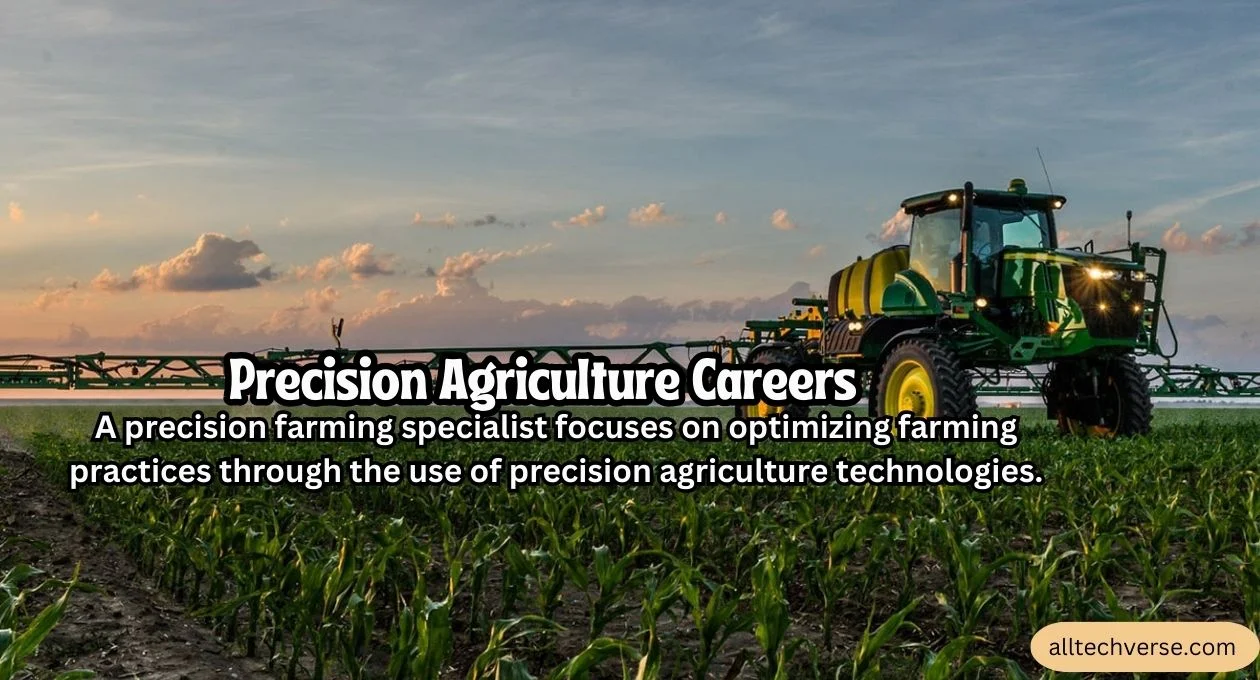
Furthermore, ongoing education and training are vital in keeping up with advancements in agricultural technology. Whether it’s new software for data analysis or cutting-edge equipment for field monitoring, precision farming specialists need to stay ahead of the curve. They often attend industry conferences, participate in research projects, and collaborate with academic institutions to ensure they are well-versed in the latest innovations and best practices in precision farming.
Ag Careers Illinois
Ag careers Illinois refer to agricultural job opportunities within the state of Illinois. Illinois is a major agricultural hub, and there are numerous career opportunities in both traditional and precision agriculture. Roles in this category may include positions such as agronomists, farm managers, and precision agriculture technicians, reflecting the state’s commitment to advancing agricultural practices. The Illinois Department of Agriculture also offers several programs and resources to support the growth and success of ag careers in the state.
One example of a successful ag career in Illinois is that of a precision agriculture sales representative. These professionals work for agricultural technology companies, promoting and selling products and services related to precision farming. They play an integral role in educating farmers on the benefits of precision agriculture and helping them implement these practices on their farms. With a growing demand for advanced farming technologies, there is plenty of potential for success in this type of role within the state.
In conclusion, precision farming presents diverse job opportunities with significant room for growth and development. By combining cutting-edge technology with traditional agricultural practices, precision farming has transformed the industry into one that relies heavily on data
Field Specialist
A field specialist works on-site at farms to apply precision agriculture technologies and practices. Their responsibilities include managing field operations, collecting and analyzing data, and providing recommendations for improving crop yields and resource management. Field specialists play a critical role in bridging the gap between technology and practical farming applications.
In Illinois, the agricultural industry continues to evolve with a strong emphasis on sustainability and innovation. Farmers and agricultural professionals are increasingly adopting precision agriculture technologies to optimize their operations. By leveraging data and advanced tools, they can make informed decisions that enhance productivity while minimizing environmental impact. This forward-thinking approach is crucial for meeting the demands of a growing population and ensuring long-term agricultural sustainability in the region.
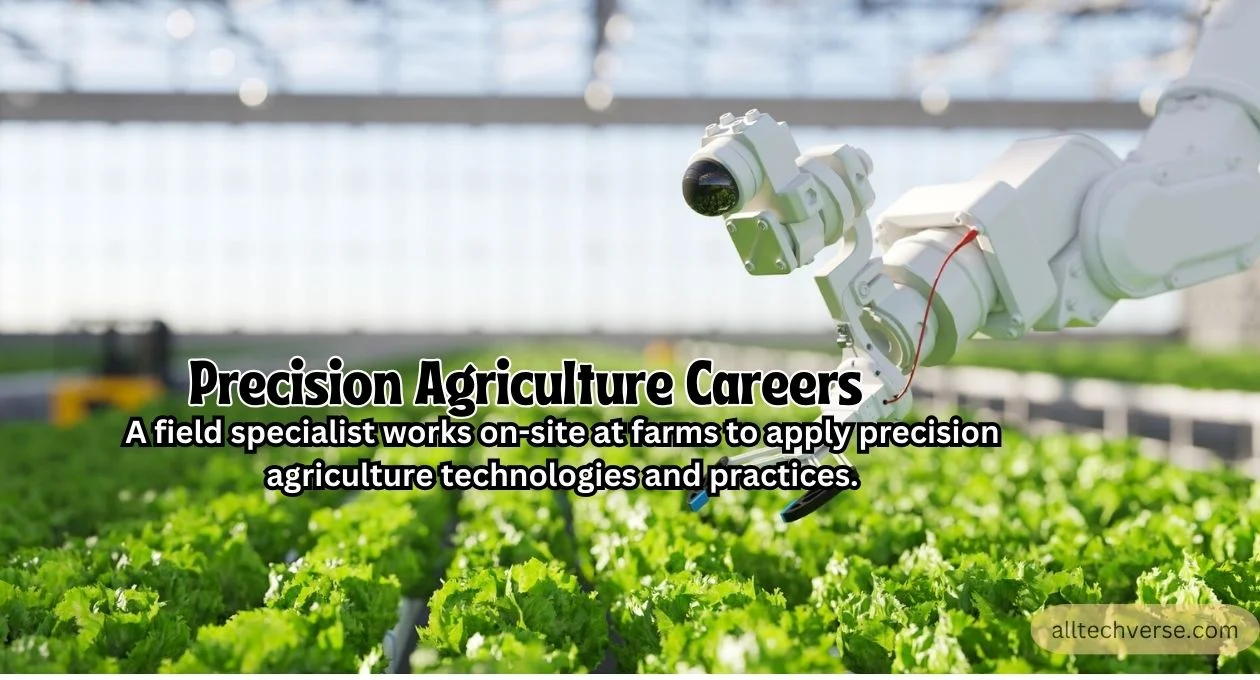
Collaboration between government bodies, academic institutions, and private companies plays a pivotal role in advancing agricultural practices. The Illinois Department of Agriculture, along with local universities, offers various programs and research initiatives to support farmers in implementing precision agriculture. These collaborations drive innovation, providing farmers with access to the latest technologies and best practices. As a result, Illinois is not only a leader in traditional agriculture but also a pioneer in the integration of modern, data-driven farming techniques.
Precision Planting Jobs
Precision planting jobs are specialized roles focused on the technology and techniques used for precise planting of crops. These jobs involve managing planting equipment, analyzing planting data, and optimizing planting practices to maximize crop yields. Precision planting professionals ensure that planting operations are carried out with high accuracy and efficiency.
One significant aspect of precision planting jobs is the use of sophisticated equipment such as GPS-guided planters and variable rate seeders. These tools allow for meticulous control over seed spacing, depth, and rate, ensuring that each crop receives the optimal conditions for growth. This level of precision not only maximizes yield but also minimizes waste, making farming operations more sustainable and cost-effective.
Moreover, individuals in precision planting roles must stay abreast of the latest technological advancements and research findings. Continuous learning through workshops, industry conferences, and collaboration with agricultural researchers is essential. By keeping up-to-date with innovations, these professionals can continually refine their practices, contributing to the overall efficiency and productivity of agricultural operations.
Soil Sampling Jobs
Soil sampling jobs involve collecting and analyzing soil samples to determine soil health and fertility. Professionals in these roles use specialized tools to gather samples and conduct tests to provide insights into soil conditions. This information helps farmers make informed decisions about fertilizer applications and other soil management practices.
Soil sampling professionals often work closely with agronomists and farm managers to develop tailored soil management plans. These plans aim to enhance soil fertility, optimize crop yields, and promote sustainable farming practices. By understanding the specific needs of the soil, farmers can apply fertilizers and other amendments more efficiently, reducing costs and environmental impact.
The data generated from soil sampling is crucial for making informed decisions about crop rotation, irrigation, and pest management. Accurate soil analysis helps identify potential issues before they become problematic, allowing for proactive measures to ensure healthy crop growth. As precision agriculture continues to evolve, the role of soil sampling is becoming increasingly vital in achieving optimal farming outcomes.
Soil Testing Vacancies
Soil testing vacancies refer to job openings for roles focused on analyzing soil samples to assess their quality and composition. These positions are crucial for understanding soil health and making recommendations for improving agricultural practices. Soil testing professionals play a key role in precision agriculture by providing data that guides crop management and resource use.
In addition to soil testing, another critical aspect of precision agriculture is the monitoring of crop health using advanced imaging technology. Drones equipped with multispectral cameras can capture detailed images of fields, allowing for early detection of issues such as nutrient deficiencies or pest infestations. This timely information enables farmers to address problems before they escalate, ensuring healthier crops and higher yields.
Furthermore, the integration of weather forecasting tools in farm management systems has become increasingly important. Accurate weather predictions allow farmers to plan their activities more effectively, optimizing planting schedules, irrigation, and harvesting. By incorporating real-time weather data, farmers can make decisions that align with current conditions, reducing the risk of crop damage due to unexpected weather events and enhancing overall farm efficiency.
Precision Agriculture Careers
Precision agriculture careers offer a dynamic and evolving field of work that combines technology with traditional farming practices. Careers in this sector are diverse and include roles such as data analysts, technology managers, and field specialists. These positions are essential for advancing agricultural efficiency and sustainability through innovative technologies.
One major advantage of precision agriculture careers is the opportunity to work with cutting-edge technology. Professionals in this field have access to the latest advancements in agricultural machinery, data analytics tools, and software systems designed to optimize farming operations. This constant engagement with innovation ensures that careers in precision agriculture remain both challenging and rewarding, offering individuals the chance to make a significant impact on food production and sustainability.
Additionally, precision agriculture careers often require a multidisciplinary approach, blending knowledge from fields such as agronomy, engineering, and computer science. This diversity of expertise fosters a collaborative work environment where professionals can leverage their unique skills to develop comprehensive solutions for modern farming challenges. As the demand for more efficient and sustainable farming practices continues to grow, precision agriculture careers will play a pivotal role in shaping the future of agriculture.
FAQs
Q: What is precision agriculture?
A: Precision agriculture is a farming management concept that uses technology to monitor and optimize agricultural practices. It involves the use of advanced tools such as GPS, sensors, drones, and data analytics to enhance crop yields, reduce waste, and promote sustainability.
Q: What qualifications are needed for a career in precision planting?
A: Typically, a career in precision planting requires a background in agriculture, agronomy, or a related field. Knowledge of modern agricultural equipment and technology is also essential. Many roles may require experience with GPS-guided machinery and proficiency in data analysis.
Q: How does soil sampling contribute to sustainable farming?
A: Soil sampling allows farmers to understand the health and composition of their soil. By analyzing this data, farmers can make informed decisions about fertilizer use, crop rotation, and irrigation, leading to improved soil fertility, optimized crop yields, and reduced environmental impact.
Q: What technologies are commonly used in soil testing?
A: Common technologies in soil testing include portable soil testers, laboratory-based chemical analysis tools, and advanced imaging techniques. These tools help professionals assess soil properties such as pH, nutrient content, and texture.
Q: Why is data analysis important in precision agriculture?
A: Data analysis is crucial in precision agriculture because it helps farmers make informed decisions. By interpreting data from various sources, such as soil samples, weather forecasts, and crop health monitoring, farmers can optimize their practices for better efficiency and sustainability.
Q: What kind of training is available for precision agriculture professionals?
A: Training for precision agriculture professionals can include formal education such as degrees in agronomy or agricultural engineering, as well as specialized courses and certifications in precision farming techniques. Continuing education through workshops, conferences, and online resources is also valuable.
Q: How do drones benefit precision agriculture?
A: Drones equipped with cameras can provide detailed aerial images of fields. This information helps in early detection of issues like nutrient deficiencies and pest infestations, allowing farmers to take timely actions to protect their crops and improve yields.
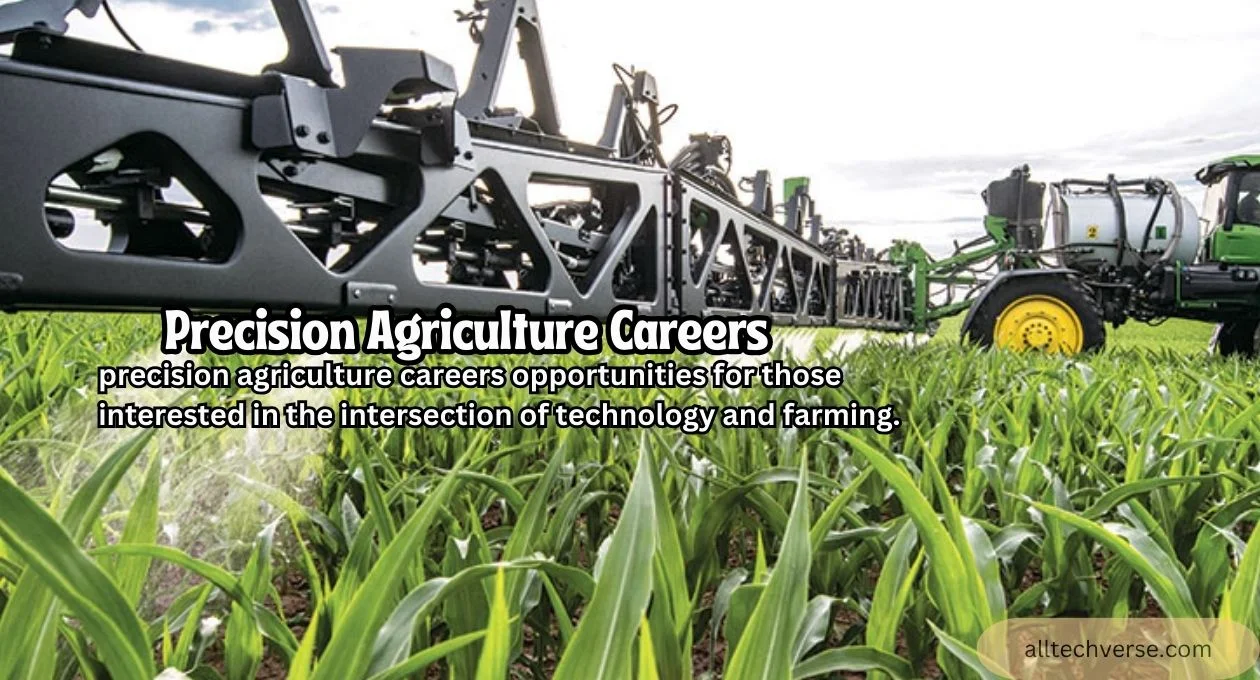
Conclusion
precision agriculture careers opportunities for those interested in the intersection of technology and farming. From precision ag specialists to soil testing professionals, there are numerous roles available for individuals passionate about enhancing agricultural practices. As precision agriculture continues to evolve, the demand for skilled professionals in this area is likely to grow, offering rewarding career paths for those looking to make a difference in modern farming.
Precision agriculture not only elevates traditional farming methods but also ensures long-term sustainability by conserving resources and minimizing environmental impact. By leveraging advanced technologies, farmers can reduce their dependency on chemical inputs, optimize water usage, and implement environmentally-friendly practices. This holistic approach not only boosts productivity but also contributes to the overall health of the ecosystem.
For More Information Keep Visiting AllTechVerse.


